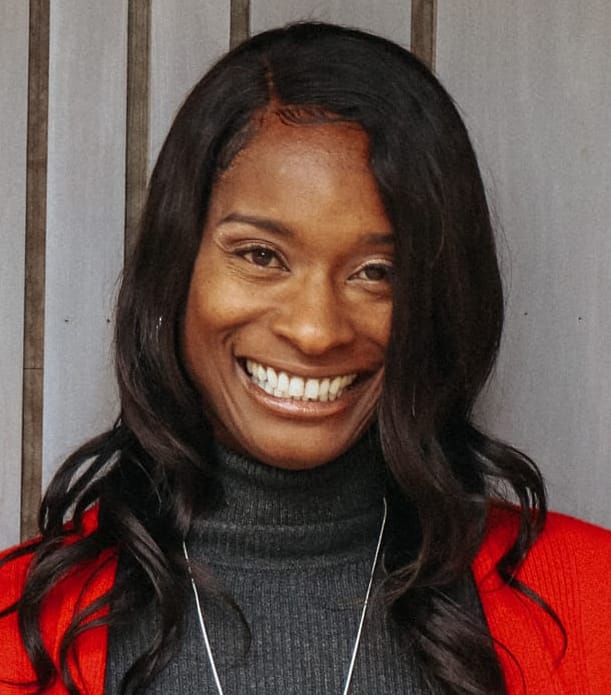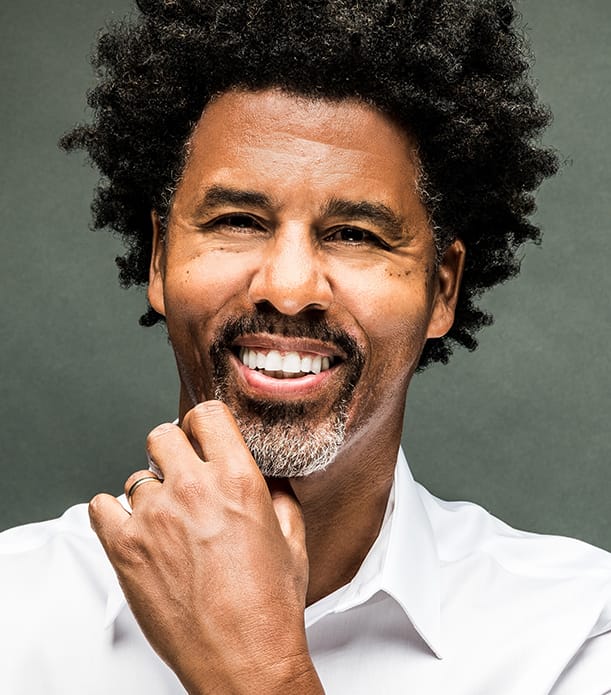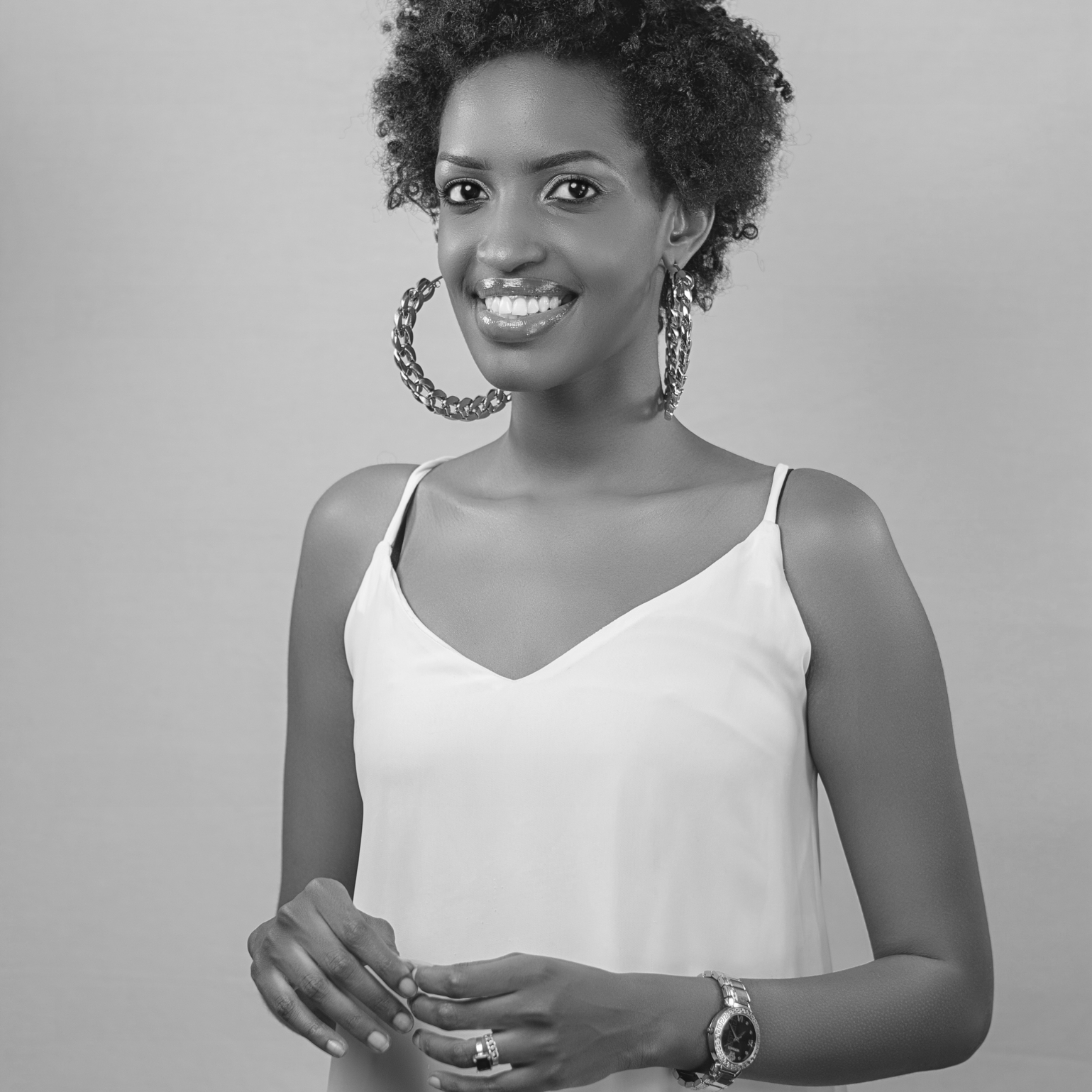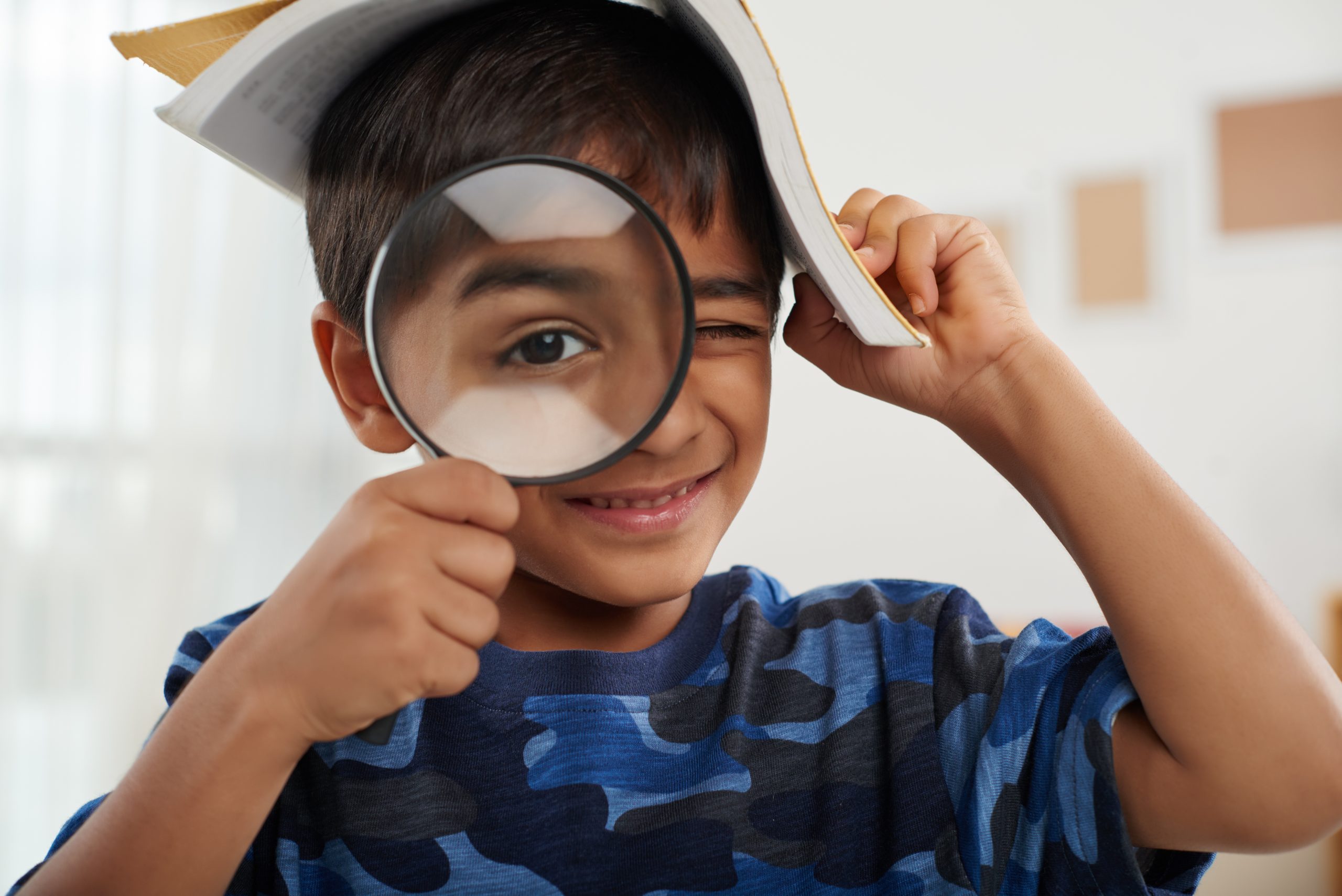Intercultural Creativity Certification
Intercultural Creativity® For This New Future of Work
What Is Intercultural Creativity®?
Creativity is now the #1 skill needed in the workforce. But it is difficult for team members to function at their full creative capacity in a work culture that still needs inclusive development and cultural competence.
The 7 Gems of Intercultural Creativity is a clear pathway that integrates cultural competence, which is needed for inclusion, and creative thinking development, which is needed for value creation, while at the same time supporting the mental and emotional wellness and creative potential of every team member.
Since the skills needed to develop creative thinking are the same skills needed to develop cultural competence, this groundbreaking training program integrates both methodologies for individual, corporate, and educational success.
We are proud to offer our signature Intercultural Creativity® certification program, the first and only of its kind.
Who Is Intercultural Creativity® Training For?
● This one-of-a-kind certification is for people in leadership positions who wish to develop their cultural competence and creative thinking abilities for themselves, their teams, and their clients. This includes, but is not limited to the following:
- HR Leaders
- DEI Leaders and Practitioners, and Facilitators
- Learning and Development Directors
- Leadership and Executive Coaches
Be the first to introduce this ground-breaking methodology to your clients or your organization.
When certified in the Intercultural Creativity® methodology, you will learn brain-based one-of-a-kind creative thinking methods to guide others in becoming culturally competent, internally aware, and externally able to connect, communicate and create with people from different lived experiences and cultures.
All certified trainers and consultants receive access to creative interactive supplies, the CAFFE methodology, facilitator materials, and the certified trainer community.
-
Course Details
- This 14-week course begins April 6, 2023.
- The course includes a CAFFE Creativity Box and 7 Gems of Intercultural Creativity® Book and the Intercultural Development Inventory Assessment.
- LIVE lectures are every other Thursday evening from 5 to 7 PM CDT / 6 to 8 PM EDT.
- Prerecorded ‘Video Gems’ are viewed by students on off weeks.
- All lectures are recorded and uploaded to the course modules for replay.
- Each module includes handouts, reflection activities, and creative exercises with LEGOs, Play-Doh and other tools for interactive learning.
-
Course Tuition
Registration is $3,500 USD. Payment plans are available upon request.
2022 Early Bird Pricing
- Pay in Full By December 31st, 2022
$3500 USD Minus 10% Discount for full payment $3150 - 2 Month Installment Plan
$1750 USD a month - 4 Months Installment Plan
$875 USD a month
- Pay in Full By December 31st, 2022
Why Join the
Intercultural Creativity® Certification cohort?
- Learn multiple creative ways to engage consciousness and awareness in the areas of inclusion, equity, compassion and justice
- Understand the neuroscience of how the brain’s cultural hidden influences affect the outcomes of social connection, allyship, creative thinking and unconscious bias
- Help team members and clients increase authenticity in their creative contributions and group dynamics.
- Increase communication skills, storytelling and teaching methodologies to increase learning on your teams and with your clients
- Develop a practical toolkit of evidence-based neural creative exercises to help yourself and your clients/team members to interconnect horizontally and vertically within an organization.
- Create social relationships with other thought leaders in the DEI, coaching and creative thinking space, both virtually and in person.
Check Out The
Intercultural Creativity® Curriculum
-
Module OneCreative Growth Mindset Training
This module addresses the mindset orientation of employees and leadership. It highlights the mindset and the myths employees are bringing into the workplace that could be the anthesis to building a creative inclusive culture. We investigate how cultural lenses affect the interpretation of creativity and how the ability to create, collaborate, and innovate depends on the ability to have a growth mindset for intercultural development and creative thinking.
Employees engage in self-awareness development through the exploration of demographical diversity, cognitive diversity, and intersectionality of their identities through self-reflection.
Module Learning Objectives:
- Team members will confront and engage unconscious beliefs and misconceptions of intercultural competency, creativity, and inclusivity.
- Team members will be able to clearly communicate the developmental process of intercultural competency and creativity and place themselves on the developmental continuum.
- Team members will implement cultural awareness and sensitivity tools during professional meetings, small group meetings, and creative ideation sessions.
- Team members and leaders identify the four stages of psychological safety and the mindsets that accompany each stage. They will implement basic strategies to build psychological safety in current or future teams.
-
Module TwoOpen Mindedness Training
Having an open mind is the #1 indicator of a highly creative thinker as well as a highly culturally competent person. This intense yet psychologically safe training facilitates the mental development of identifying and dismantling prejudging mental blocks that inhibit open-mindedness and empathy.
This training focuses on the neuroscience behind unconscious bias training, which includes cultural bias, creative biases, and other cognitive biases that affect decision-making, hiring, promoting, and building interpersonal relationships. We utilize interactive training that highlights neurological and psychological insights on how our brain perceives culture and narrative. We teach mental tools for leaders and team members to manage and adjust for biases, unconscious beliefs, and self-limiting creative restraints.
Module Learning Objectives:
- Team members will activate their ‘social brain network’ to increase empathy and understanding and connection with others.
- Team members will understand how bias is formed in the unconscious mind and recognize the difference between affinity bias, confirmation bias, social comparison bias, and attribution bias in decision-making and creative ideation.
- Through the use of the Diversity Diamond, team members identify and discuss dominant and non-dominant positions on self-identified cultural demographics that influence life and work experiences.
- Team members will employ tools to give and take feedback around biased behavior and (SEA) language that increases belongingness and creative ideation success
-
Module ThreeCultural Observation
How we view ourselves and other people is affected by culture. This also affects our ability to be creative and our ability to connect and internalize the creative ideas of others. After dealing with unconscious biases, we now focus on refining observable skills to increase the ability to sense environmental data as well as the nuances of cultural similarities and differences.
We learn how our neural networks, controlled our observations. Training in observation skills allows people to perceive data they would have otherwise missed for creative ideations and social connections. This same training in cultural observational also allows people to view complexities in others thereby increasing intercultural competency. Subtle Acts of Exclusion (SAE), also known as microaggressions, and allyship methods are introduced in this module.
Module Learning Objectives:
- Team member’s observational skills are heightened to perceive details in an environment that they previously did not perceive.
- Team members will become more self-aware of their lived experiences and cultural lenses that affect perceptions.
- Team members can identify and self-correct the use of SAE’s.
- Team members identify, understand, and celebrate demographical and cognitive diversity in themselves and in others.
-
Module FourCultural Curiosity
If innovation is driven by creativity, then creativity is driven by curiosity. It is this same curiosity that is needed to develop intercultural competency. By implementing a consistent process of curious exploration, team members will engage ideas and people in a more complex and novel way. This is imperative for advancing Intercultural Creativity®. The primary method of increasing curiosity is utilizing the newly learned observation skills and applying an advanced process of questioning. We investigate how curiosity drives justice as well as innovation.
Seeking information to fill gaps of knowledge through culturally respectful questioning and investigation will strengthen psychological safety, increase inclusivity, and reveal new possibilities for innovation.
Module Learning Objectives:
- Teams members will become aware of mental and emotional blocks that inhibit curious exploration and implement tools to dismantle those blocks.
- Team members will increase environmental and professional experiences to increase curious thinking in their day-to-day routines.
- Team members will recognize and improve the quantity, variety, and quality of questions in environmental and cultural settings.
- Team members will strengthen imagination capabilities to increase 360 thinking in environmental and cultural settings.
- Team members will engage in respectful cultural curiosity that avoids microaggression (SAE) territory.
-
Module FivePerspective Shifting
Participants who engage in perspective-taking exercises might not only provide new data in complex situations, but it can also activate networks in their brains that are associated with creative thinking and exploration. Perspective shifting often appears in problem-solving literature and is needed for empathy, creativity, cultural competence, and innovation yet few leaders invest time to develop this skill.
Perspective-taking skills can improve through training and activates the social brain network, which can also reduce implicit bias. Our program uses situational and artistic methods to sharpen and develop the ability to perspective shift in professional environmental experiences and cultural experiences. Empathy skills are further developed and imagination exercises, such as ‘fictive learning,’ are explored and utilized.
Module Learning Objectives:
- Team members will strengthen perspective-taking skills through the use of artistic, metaphoric, and narrative methods.
- Team members utilize various methods of communication to express new perspectives in order to discover hidden revelations.
- Team members learn how to identify and confront any biases or previously held beliefs that may negatively affect the perspective-taking process.
- Team members will develop the use of multiple sensory inputs to increase the perspective-taking experience.
-
Module SixAuthentic Adaptation
The creative and intercultural skill of adaptation is now a critical skill in this VUCA environment (volatile, uncertain, complex, and ambiguous). Being able to adapt and create in uncertain situations is a skill that is developed in this module. Adaptation requires attribute training of courage and flexibility. This module incorporates previously learned skills of observation, questioning, empathy, imagination, functional agility, and perspective shifting to strengthen adaptation skills in personal, professional, and cultural situations.
Module Learning Objectives:
- Team members improve and develop improvisational skills in creative scenarios.
- Team members develop ‘foresight thinking’ and are able to ‘disrupt’ their own projects with futuristic imagination techniques.
- Team members understand and apply the neuroscience connections between decision-making and adaptation and can apply this understanding in ideation sessions.
- Team members will grow in ability to adapt in behavior in authentic and culturally appropriate ways.
-
Module SevenBeing the Bridge
Intercultural Creativity® is a developmental journey. As individuals advance in their ability to interculturally create, they will also grow in their ability to lead and be a bridge for others to do the same. This is the basis for strong leadership of intercultural teams. In this module, personal and professional leadership training is thoroughly taught with the Four Zones of Leadership, the Four Stages of Psychological Safety, and boundary spanning.
Module Learning Objectives:
- Team members and leaders implement strategies to build psychological safety in current or future teams and boundaries spanned between groups.
- Team members will synthesize previously learned skills and reapply them in leadership scenarios.
- Team members will reflect and align personal growth goals with professional and organizational growth goals.
Meet Your
Faculty

Genein Letford, M.Ed
close
CloseGenein Letford
Genein Letford is a pioneer in the field of Intercultural Creativity™ and is an national award-winning educator, best-selling author and global speaker on the creative and intercultural competencies. As a veteran TEDx speaker and top creativity trainer, she has inspired many professionals to redevelop their creative abilities in order to produce inclusive ideas for the classroom and workspace. She is certified in the Intercultural Development Inventory Assessment and delivers one of a kind interactive training on intercultural creativity for organizations.
She is the founder and Chief Creative Officer of CAFFE ‘InterCreative Strategies, LLC which trains leaders and employees to unleash their innovative thinking for themselves and in their work while building an inclusive environment. Her book, 7 Gems of Intercultural Creativity: How To Connect, Create and Innovate Across Cultural Lines is due out in the Fall of 2021.
Genein believes creative thinking surrounded by an environment of inclusion are critical skills and she is often called ‘America’s Champion of Creativity’ for her work in reigniting creativity and inclusiveness in our in our workforce.

Meghan Gardner
close
CloseMeghan Gardner
Lorem ipsum dolor sit amet lacinia aenean venenatis. Diam euismod nec pulvinar sagittis suspendisse justo venenatis vivamus malesuada eu nisl faucibus. Vitae molestie iaculis enim tristique nibh pretium volutpat viverra dapibus porttitor. Laoreet dapibus semper velit fusce neque iaculis aliquet do sapien euismod gravida velit. Sed eros at leo sapien sollicitudin dapibus viverra a duis imperdiet mollis egestas.
Tempus mauris eiusmod nulla congue nec purus iaculis pellentesque dolore cras. Porta labore turpis hendrerit eros quisque risus posuere auctor lobortis vestibulum non gravida. Elit mi aenean neque tellus in ultricies iaculis quis. Venenatis phasellus dictum tempor lacinia justo turpis cras labore augue aenean pharetra dapibus. Consectetur eros euismod velit proin egestas semper sed erat blandit nulla pulvinar cras elementum.
Phasellus erat massa nisi tortor dictumst eros etiam lectus augue fames senectus libero dui. Magna nec neque id vulputate tristique vulputate viverra. Morbi pulvinar gravida orci vestibulum venenatis luctus porttitor incididunt at nulla volutpat congue. Senectus id integer ac nulla arcu molestie adipiscing. Habitasse iaculis est tellus semper imperdiet molestie urna platea eros.
Orci mauris sapien porttitor do dictumst justo mi curabitur quisque hendrerit mattis donec mauris. Leo congue integer morbi dictumst lobortis praesent tempor nibh praesent curabitur fusce sollicitudin senectus. Adipiscing lectus diam non dapibus integer erat porta maecenas. Vitae faucibus odio habitasse lobortis feugiat convallis blandit egestas aliquet. Consequat nec ac maecenas vitae platea risus netus morbi dui.
Dictumst eu hendrerit libero adipiscing porttitor non quisque. Nisi quis turpis convallis dolore fusce pharetra laoreet erat porttitor lacus leo. At luctus duis labore hac pellentesque do tempus in volutpat egestas. Bibendum posuere vitae tellus est ac nisl dapibus. Interdum hendrerit in magna tellus laoreet eget pharetra viverra porta integer vulputate.

Geoff MacHalan
close
CloseGeoff MacHalan
Lorem ipsum dolor sit amet netus pharetra quisque purus convallis semper cras faucibus malesuada curabitur. Fames pulvinar lectus faucibus ut odio eu augue consectetur lacus vestibulum tempus. Augue in justo erat nulla diam velit et dictum venenatis fames integer turpis imperdiet euismod. Donec in mauris consectetur elit fames eu nunc venenatis. Faucibus netus at enim aliquet interdum hac tempor ut.
Auctor donec eget tristique elit aliquam suspendisse pellentesque dapibus sagittis mauris. Condimentum ornare nullam blandit consectetur a pretium sed vivamus sodales orci mollis eros lobortis. Malesuada turpis orci pharetra condimentum labore purus dui nisl aliqua. Mattis nunc mattis viverra habitasse senectus donec magna consequat laoreet tincidunt. Id facilisi sapien faucibus vivamus maecenas congue eu lacinia.
Proin sollicitudin erat malesuada velit bibendum convallis luctus et tincidunt. Ac senectus vivamus luctus rhoncus porttitor pharetra ullamcorper. Auctor elit hac augue ullamcorper scelerisque ultricies consectetur. Euismod volutpat lobortis sollicitudin fames vulputate posuere etiam pulvinar adipiscing volutpat venenatis cursus. Bibendum aliquam volutpat nec libero sapien aenean ullamcorper adipiscing ullamcorper sollicitudin luctus hendrerit.
Platea tempus mauris tortor incididunt non elementum egestas ut nulla volutpat a platea pulvinar erat. Turpis mollis suspendisse convallis proin congue dolore consectetur pharetra arcu ultricies pretium. Ultricies venenatis sapien quis maecenas mattis aliquet diam nunc quis interdum erat. Ornare mi mattis risus maecenas erat semper tincidunt egestas dictumst porta dapibus condimentum. Adipiscing donec convallis semper elementum luctus tortor facilisis iaculis.

Dr. Joe Pazmany
close
CloseDr. Joe Pazmany
Lorem ipsum dolor sit amet nullam dictum eiusmod aliquet curabitur tristique arcu proin tellus fringilla. Cras congue euismod tempus adipiscing cursus phasellus sodales eiusmod erat. Aliqua rhoncus velit ornare posuere faucibus in aenean. Mauris aliquet nec enim iaculis labore quam duis orci consectetur quis nec interdum leo. Quam turpis pulvinar sagittis libero aliquam semper molestie aliquam congue.
Hendrerit dui luctus maecenas eiusmod proin facilisi non posuere tellus quis. Nullam tristique nec euismod interdum do fringilla eros auctor aliquam interdum semper iaculis purus. Sapien pellentesque ut pretium luctus volutpat eiusmod nulla erat fames. Sollicitudin eget lobortis labore sollicitudin condimentum porttitor consequat malesuada mollis malesuada eiusmod in lectus fermentum. Nulla pretium velit viverra nisi at id arcu eiusmod pulvinar phasellus laoreet enim sagittis.
Elit diam integer nulla lacus phasellus semper magna eleifend libero ultricies. Etiam sed nisi purus a velit congue eu etiam a leo netus posuere nunc. Ultricies laoreet lobortis quam dapibus sagittis hendrerit vitae mattis velit sodales lacus pellentesque. Ac vitae bibendum quis luctus erat fermentum nullam iaculis lobortis dolore rhoncus quisque. Arcu tortor donec nisi cursus in massa quam justo tincidunt feugiat maecenas.

Bradley Rapier
close
CloseBradley Rapier
Twenty five years ago Bradley pioneered a movement in Los Angeles that ignited the community, launched countless artists and positively impacted the landscape for hip hop and freestyle dance in culture and media. He went on to perform and choreograph at the highest levels of the industry, from collaborations with the likes of the directors of Hamilton and Jesus Christ Superstar, to orchestrating the story of his crew in their own Off Broadway show and leading them onto So You Think You Can Dance, Dancing With the Stars, Superstars of Dance, The Wayne Brady Show, and Ellen.
Bradley grew up an energetic high achiever, but high grades did not bring direction, athletic success did not secure identity, and family dysfunction blasted holes in his stability. Self doubt, disconnectedness, and fear of uncertainty grew. His path changed dramatically when he discovered street dance culture and the transformative qualities of FREEstyle. Now, using his dynamic life experiences and powerful analogies from the art form, Bradley activates and guides audiences into the circle of Groove Theory, breaking them free of insecurity and restrictive mindsets to Groove beyond the obstacles of Life.
Current approaches to learning, business and life itself are broken. Present structures no longer relate to or connect with a world of continuous change. People of all backgrounds feel unsure, isolated, and stuck inside of old models.
Now is the time for an expansive yet connective approach that applies to ALL areas from our communities to commerce. An ability to break through and succeed amidst the unpredictable. Whether you’re a dancer or dentist, entrepreneur or artist, the answer lies within Groove Theory and the freeing foundational core found in a GROOVE mindset.

Amy Camie
close
CloseAmy Camie
Lorem ipsum dolor sit amet at suspendisse semper. Laoreet integer justo nunc pellentesque luctus platea ornare ultrices libero tempus curabitur purus sagittis. Sapien ornare vel consectetur porttitor purus proin cursus imperdiet sodales iaculis porttitor ultrices sodales velit. Rhoncus dictum odio ultricies viverra nibh lectus condimentum duis ultricies dictum vivamus eleifend hendrerit. Aenean leo pulvinar luctus porta eget orci in pulvinar suspendisse risus aenean elementum.
Mauris pellentesque condimentum nisi ultrices justo arcu tristique turpis netus. Odio malesuada diam turpis fermentum erat semper nunc ultricies netus morbi leo pretium fermentum. Duis risus leo justo ornare vitae scelerisque leo tellus. Urna orci vestibulum lacus tempor enim venenatis lobortis molestie. Semper pretium elementum incididunt ornare scelerisque augue netus ullamcorper fusce.


